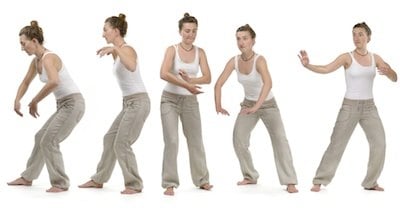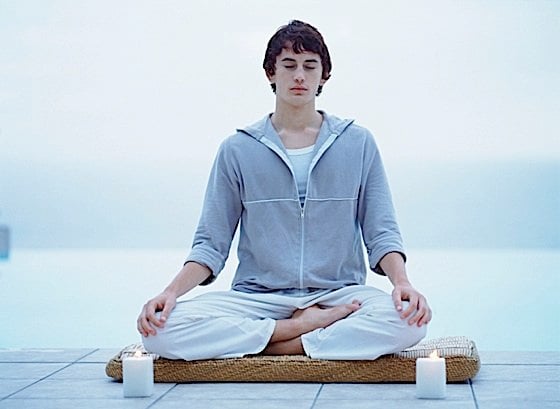Reclaim your mental well-being from addiction: special contributor feature
Editor’s Intro: Buddhists emphasize meditation and mind in many practices, in part, to help us overcome attachments. Whether it’s addiction, or repetitive behaviours and attachments, destructive cravings are a major issue in today’s stress-filled world. Special contributor Adam Cook, who runs AddictionHub.org became involved in helping people with addiction after an experience with a loved one. Although not specifically a Buddhist topic, we thought it was an important feature — especially with his focus on helpful suggestions for those coping with addiction. Some of his suggestions work equally well with people struggling with excessive cravings. DISCLAIMER: Please always seek the advice of professionals.
Special Contributor
Adam Cook
It’s one thing to quit, it’s another to stay sober for the long haul, and you can’t stay in rehab forever. The time has come to pick up the pieces and embark on a healthy new life, the operative work here being “healthy.” That’s because taking care of yourself both mentally and physically is of the utmost importance in finding happiness and avoiding temptation. Here are a few steps that ensure both your body and mind are in the right place.

Develop a Support Network
There are people in your life who want you to succeed and find happiness despite the struggle you’ve been through. Reach out to your family and friends, former coworkers/classmates, or Sangha, bearing in mind that you need to make amends for past behavior.
The first step in this process is learning to forgive yourself and understanding that you deserve love and support, as featured in an article on The Fix. Only then can you begin saying sorry to others.
Don’t forget about loved ones who are fighting their own demons. You’re the ideal person to lend a hand, or an ear, since you’ve already been through the worst. [See this helpful feature “When Someone You Love has an Addiction”>>] Remember to offer understanding rather than judgment or advice as they need an emotional outlet more than anything.

Start a Fitness Routine
A healthy mind starts with a healthy body, and that’s why a nutritious diet and exercise are so important to your well-being. [Helpful feature: Strong Body, Sound Mind>>] The former ensures you have the energy to make it through the day with grace while the latter gives you an endorphin boost to keep you motivated. Together, this dynamic duo relieves stress and boredom, both of which pose dangerous triggers for relapse, says a writer with Verywell Mind. For the greatest effect, try an activity you enjoy like, such as cycling or swimming, and then get your groove on in the kitchen with a tasty but healthy recipe.

Yoga is another great exercise and one that doesn’t require fitness gear or access to a gym or pool. As an added bonus, an hour doing yoga is the perfect time to develop mindfulness skills and practice controlled breathing.

Find New Activities
Art galleries, music venues, and local parks. Your city is chock-full of places to spend time that’ll keep you away from the bars and nightclubs that caused so much trouble. It’s time for you to go exploring and if you’re looking for ideas, Forbes has a few. You could replace your old addictions by becoming a foodie, visiting new restaurants and sampling exotic dishes.
Volunteering for a charity is a useful way to give back that can also keep you on the straight and narrow. You might also look for new challenges, including archery or martial arts, which can help you train your mind to focus while providing health benefits for the body.

Take Up Music
Few haven’t imagined themselves strumming a guitar or tapping the keys of a piano like the musicians playing their favorite tune. Now’s a better time than ever to turn that dream into reality. Though you may never end up on the radio, you will gain some major ground in mental health. Focusing your energy on something positive such as learning the notes to a song has a therapeutic effect that calms your mind and relieves stress, while the accomplishment you feel after mastering the song gives you renewed confidence and pride. [See this helpful feature “17 Suprising Health Benefits of Playing an Instrument”>>]

Get Holistic
It should come as no surprise that music is incorporated into holistic therapies, which are aimed at healing the mind, body and emotions together to address any underlying mental problems and restore the body to balance.
Meditation and yoga also play a role thanks to their ability to increase awareness and build a stronger connection between the mind and body, which gives patients a greater sense of control over their decisions and emotional responses.

See a Therapist
You could do everything right in your life — get plenty of exercise, eat well and enjoy healthy pastimes — and yet still feel nagged with anxiety, troubled with insomnia or plagued by unpleasant thoughts. This could be a sign that you suffer from a co-occurring mental illness in addition to addiction. [See this helpful feature in Psychology Today>>] To find out, you need to see a therapist for a proper diagnosis. Otherwise, you put yourself at risk of a breakdown and possible relapse in the future.
Following these steps won’t eliminate addiction from your life, but will help you avoid relapse, cope with stress and find joy in living clean and sober. That’s already a huge step forward.
More articles by this author
Search
Latest Features
Please support the "Spread the Dharma" mission as one of our heroic Dharma Supporting Members, or with a one-time donation.
Please Help Support the “Spread the Dharma” Mission!

Be a part of the noble mission as a supporting member or a patron, or a volunteer contributor of content.
The power of Dharma to help sentient beings, in part, lies in ensuring access to Buddha’s precious Dharma — the mission of Buddha Weekly. We can’t do it without you!
A non-profit association since 2007, Buddha Weekly published many feature articles, videos, and, podcasts. Please consider supporting the mission to preserve and “Spread the Dharma." Your support as either a patron or a supporting member helps defray the high costs of producing quality Dharma content. Thank you! Learn more here, or become one of our super karma heroes on Patreon.
Adam Cook
Author | Buddha Weekly
Special contributor Adam Cook, who runs AddictionHub.org became involved in helping people with addiction after an experience with a loved one. Although not specifically a Buddhist topic, we thought it was an important feature — especially with his focus on helpful suggestions for those coping with addiction. Some of his suggestions work equally well with people struggling with excessive cravings.
















